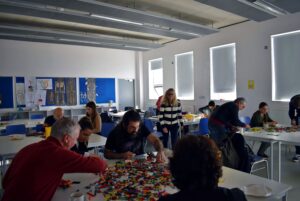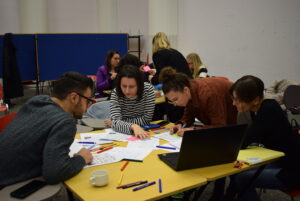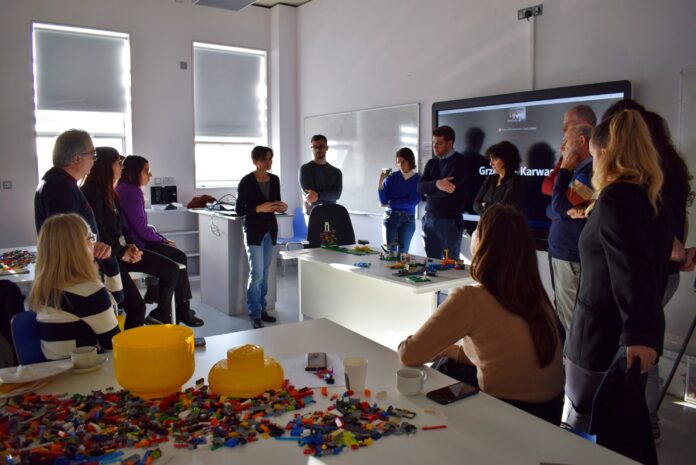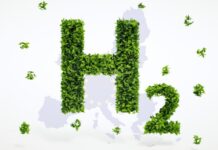On November 16th and 17th it was held in Dublin (Ireland), the first Learning Teaching and Training Activity and the first intermediate transnational meeting of the project e^4— tools in Higher Education for an Embodied & creative Energy Education.
The aim of the project is to develop innovative tools to upskill teachers with new narrative and imaginative approaches to teaching and science education, in matters concerning energy, fostering creativity and the use of ‘tools of imagination’, and promote a network of academic institutions and external stakeholders working on the energy sector.
The representatives from the 8 project partners, including academics and primary school and lower secondary teachers (in-service and future), plunged themselves over two days of joint training on the ‘tools of imagination’ world, to understand how to use metaphorical, imaginative, and narrative approaches to natural science in general and energy, in particular.
The different activities were of great importance, as partners had the opportunity to discover the power of ‘tools of imagination’ and to experiment them with their own hands, words and imagination. Participants were encouraged to embrace creativity, unleash their imagination, discuss concepts related to the Forces of Nature and their energy with storytelling and metaphors, make connections between different points of view, and create shared models.
The workshops involved the use of ‘tools of imagination’ such as LEGO bricks, storytelling and story writing, process diagrams, Forces of Nature theatre, and embodiment. These activities enabled a common alignment of partnerships, before starting to work on the contents of the ‘Imaginative Course’ modules, a Curriculum for teaching through imaginative tools (PR2).
The goal of the activity was to allow all partners to test, through a hands-on experience, the ‘tools of imagination’ to explain concepts related to energy, and to develop an awareness of their power. Indeed, not all partners had experience in handling imaginative tools. These workshop days were essential to help everyone understand and investigate the topic and develop a shared point of view of how ‘tools of imagination’ could be integrated and enrich the Curriculum.
After two days of collaboration, sharing, creativity, and exchange, the partners are now ready to start developing contents for the ‘Imaginative Course’!




